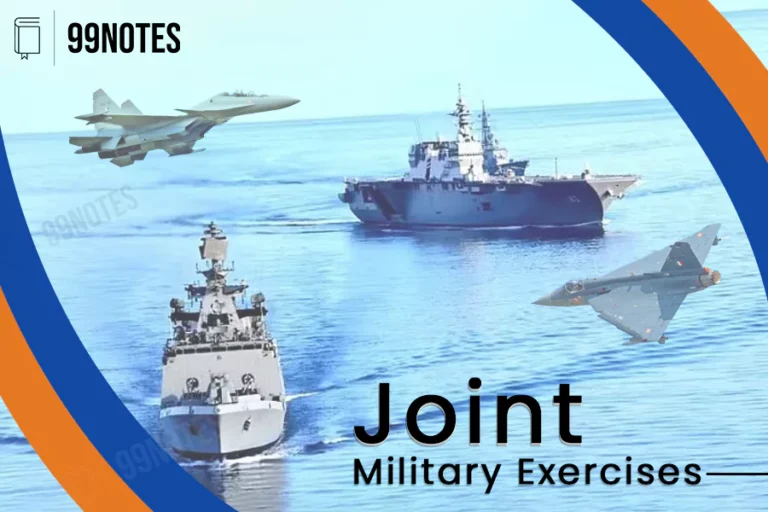Strengthening Ties: Sri Lanka’s President AKD Reaffirms Security Assurances and Developmental Cooperation with India
(Source: Indian Express; Section: Explained; Page: 12)
| Topic: GS2 – International Relations |
| Context: |
|
Analysis of News:
Assurances on Security and Regional Stability
- Sri Lankan President Anura Kumara Dissanayake (AKD) assured India that Sri Lanka would not permit its territory to be used for activities detrimental to India’s security.
- This commitment, seen as a clear signal to China, reassures New Delhi amid concerns over Chinese vessels in Sri Lankan waters.
- However, the joint statement avoided direct mentions of the contentious Tamil minority issues, reflecting AKD’s reluctance to implement the 13th Amendment or address alleged war crimes.
Balancing Confidence and Sovereignty
- Emboldened by a strong electoral mandate, AKD approached the bilateral talks with greater confidence.
- This was evident in his focus on unity and sustainable development over New Delhi’s insistence on Tamil reconciliation.
- Domestically, his anti-corruption drive strengthens his position, reinforcing a “Clean Sri Lanka” image as he navigates challenges with major powers.
Strengthening Economic and Developmental Ties
- The joint statement emphasized mutual benefits in bilateral cooperation. Key projects include renewable energy initiatives, housing projects, and digital connectivity advancements such as Aadhaar and UPI integration.
- Collaborative efforts to develop energy hubs in Trincomalee and offshore wind power highlight a focus on sustainable economic recovery in Sri Lanka.
Enhancing Physical and Defence Connectivity
- Both nations prioritized enhancing physical connectivity with initiatives like passenger ferry services and port rehabilitation.
- Defence cooperation was also a focal point, with discussions on joint exercises, maritime surveillance, and platform-sharing to bolster Sri Lanka’s security capabilities.
- India emphasized the significance of maritime and cyber security through the Colombo Security Conclave mechanism.
A Partnership for Stability and Growth
- Despite a change in Sri Lanka’s leadership, the fundamental priorities between New Delhi and Colombo remain consistent.
- While India seeks to safeguard its strategic interests, Sri Lanka aims for stability and economic recovery, making this partnership essential for both nations in the years ahead.
| What are India’s concerns with Sri-Lanka? |
| 1. Rising Chinese Footprint- China is spreading its tentacles in Sri Lanka by bagging the project to develop an airport in capital Colombo. India remains concerned due to lack of a level playing field for economic projects in Sri Lanka, with the Sri Lankan government at times openly siding with the Chinese.
2. India’s security concerns- The regular movement of Chinese naval vessels, particularly submarines and the so-called research ships, is a matter of grave security concern to India. 3. Safeguarding India’s strategic interests- The environmental groups, which are an important part of the NPP, have demanded the scrapping of the Adani group backed renewable energy project. India is concerned about protecting its strategic interest in the island nation, especially after giving millions of rupees in aid and loan to Sri Lanka. 4. Exclusion of minority groups- India is concerned regarding the exclusion of Tamils and Muslims from the governance structure of the newly formed government. 5. Fishing disputes- Despite reaching an agreement 47 years ago through the 1974 Indo-Lanka Maritime Boundary Agreement, India and Sri Lanka have not yet resolved their maritime disputes, like Katchatheevu Island dispute. Indian fishermen continue to cross the maritime border into Sri Lanka in the Palk Strait, resulting in encounters with the Sri Lankan Navy, leading to tensions and assaults. 6. Tamil issue- There is concern regarding Sri Lanka’s lack of measurable progress in fulfilling its commitment to finding a political solution to the Tamil issue. The Tamil community in Sri Lanka has been demanding the implementation of the 13th Amendment that provides for devolution of power to it. |
| PYQ: In respect of India — Sri Lanka relations, discuss how domestic factors influence foreign policy. (200 words/10m) (UPSC CSE (M) GS-2 2013) |
| Practice Question: Examine the key outcomes of Sri Lankan President Anura Kumara Dissanayake’s visit to India and analyze their implications for India-Sri Lanka bilateral relations. (150 words/10 m) |


